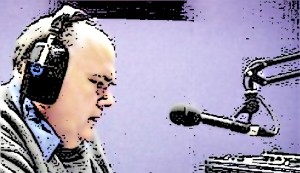In what we people aged 40 and over like to refer to as “the good old days” (the old days were never bad, by the way, even when they were), writing a piece such as I am about to write would have been quite a different process.
Having decided — or being assigned — to write about napping, I would have gone to some sort of reference book, or rung the PR person at the local university, to find an expert on sleep.
I would have then contacted that person and arranged to meet them, or if time were short, spoken to him or her on the telephone, and asked probing questions along the lines of: is napping good for you?
Now, I hope there are journalists out there who would still take the same approach, although I suspect the process might be generated from the other end: i.e. the PR person from the university would issue a press release saying one of its scientists had made some sort of discovery that napping was good for you. Or bad for you.
In any case, the story would be written on the basis of that one person’s opinion and maybe, just maybe, the complementary, or contrary, opinion of another scientist who was easily accessible or had already been on the record about this subject — i.e. her or his opinions were to be found in the newspaper cuttings library under S for sleep.
Nowadays, of course, to write an article about napping, the first thing I did was Google the phrase: “is napping good for you?” (This technique, by the way, also works with other subjects).
Now, from here it gets tricky. If this were a paid column for a respected newspaper or magazine, I would use that merely as a starting point for my long and detailed research, allowing me to get my head around the range of opinions on the subject, work out where the latest research in the field was happening, and identify the right books or articles to read and the best people to speak to.
As this is an unpaid column for my personal blog, I am just going to throw up some of the stuff Google found for me, along with some of my own opinion, which ain’t really worth very much at all. But, hey, you got this far, so you may as well continue reading.
As it turns out, Time.com published something on this very topic about a year ago. And the Mayo Clinic, always a reliable source on matters medical, has an advisory article on napping. Oh, and there are thousands of other sources, but who has the time to read them all? (You do? Go for it!)
Basically, napping during the day is good for you because it can help you relax, reduce fatigue, increase alertness, put you in a better mood and improve your performance, memory and reaction times. But napping is bad in for you in the sense that it can be an indicator of serious underlying health problems such as stress, insomnia and sleep apnoea.
But napping is not for everyone; some people wake up “feeling like crap”, according to the eminent Dr Sara Mednick, a psychologist at the University of California, Riverside and author of Take a Nap! Change Your Life.
For those who do benefit from a daytime doze, the recommendation seems to be to keep your naps short, maybe 20 to 30 minutes, with first timers advised to take less in the beginning and work their way up. You should also do it in a dark room around 2pm or 3pm.
My experience is that I generally get very tired in the early afternoon, and I have to get up and take a walk, have a cup of coffee or wander around in the fresh air to “recharge my batteries”. This normally gets me through the working day. But on my day off and during holidays, I often have an afternoon nap and it seems to make me feel more energised. Today it gave me the mental wherewithal to write this article, and it even helped me magic up the hook (i.e. the bit about the good old days).
The next challenge, however, is to get the boss to accept that napping is not only a perfectly normal thing to do, it will in fact benefit the business by making employees more alert and all-round better people. And for the company to provide the facilities to allow it to happen.










